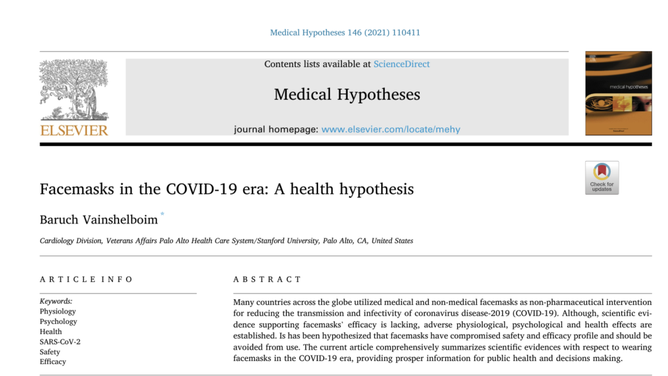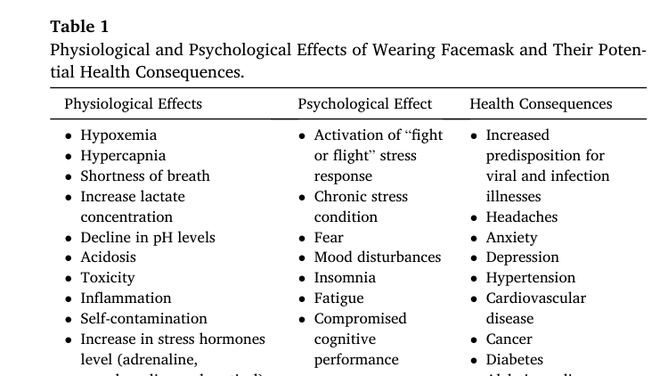Study Makes Claim That Masks are 'Ineffective', Have 'Devastating Health Consequences'
Baruch Vainshelboim, a clinical exercise physiologist, published a study in November that recirculated on the internet recently hypothesizing that masks are ineffective and could have long-term health consequences.
"Although, scientific evidence supporting facemasks’ efficacy is lacking, adverse physiological, psychological and health effects are established," the article states.
In January, the Centers for Disease Control and Prevention performed a study and concluded that universal masking is recommended to slow the spread of COVID-19.
The CDC concluded that cloth masks and medical procedure masks substantially reduce exposure from infected wearers and reduce exposure of uninfected wearers — the CDC's study states that mask mandates were in place in 38 states and DC at the time of publication.
But the researcher disagrees and says not only are masks ineffective, but could also be causing long-term health problems.
"Both medical and non-medical facemasks are ineffective to reduce human-to-human transmission and infectivity of SARS-CoV-2 and COVID-19," the article details. "Wearing facemasks has adverse physiological and psychological effects ... long-term consequences of wearing facemasks on health are detrimental."
The research suggests that the long-term practice of wearing facemasks has the "strong potential for devastating health consequences," and states that masks should be "avoided from use."

"The existing scientific evidences challenge the safety and efficacy of wearing facemask as preventive intervention for COVID-19," the article reads. "The data suggest that both medical and non-medical facemasks are ineffective to block human-to-human transmission of viral and infectious disease such SARS-CoV-2 and COVID-19, supporting against the usage of facemasks. Wearing facemasks has been demonstrated to have substantial adverse physiological and psychological effects."

Table courtesy of "Facemasks in the COVID-19 era: A health hypothesis" research article.
Vainshelboim also cited the possible impact COVID-19 has on mental health.
"With respect to mental health, global estimates showing that COVID- 19 will cause a catastrophe due to collateral psychological damage such as quarantine, lockdowns, unemployment, economic collapse, social isolation, violence and suicides," he wrote. "Chronic stress along with hypoxic and hypercapnic conditions knocks the body out of balance ... This state suppressing the immune system to protect the body from viruses and bacteria, decreasing cognitive function, promoting the developing and exacerbating the major health issues ..."
The study concludes that existing scientific evidence challenges the safety and efficacy of wearing facemask as preventive intervention for COVID-19.
Governments, policy makers and health organizations should utilize prosper and scientific evidence-based approach with respect to wearing facemasks, when the latter is considered as preventive intervention for public health.
The study suggests that long-term consequences of wearing facemask can cause health deterioration, developing and progression of chronic diseases and premature death.
This article has been updated as of 5:45pmCT, April 20, 2021. It had previously associated the work of Vainshelboim to Stanford University. The Associated Press and other fact checkers confirmed that he has no association to the University.
The AP article cited a quote from Stanford University as follows:
“Stanford University has never employed Baruch Vainshelboim,” Greicius wrote in an email to the AP. “Several years ago (2015), he was a visiting scholar at Stanford for a year, on matters unrelated to this paper.”